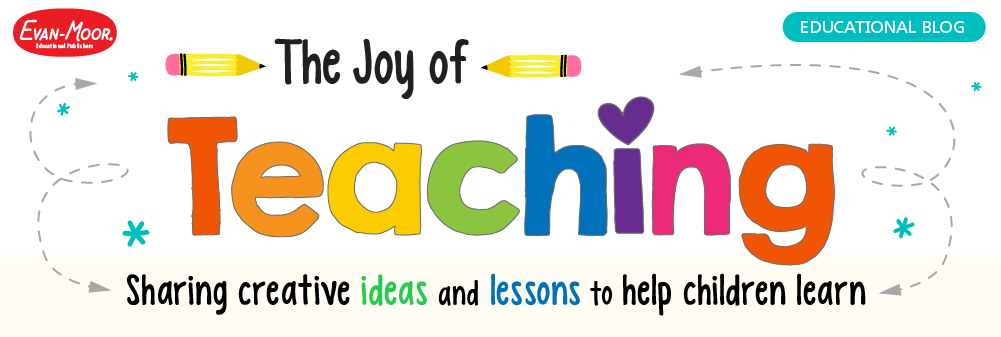
As children progress from simple math to more complicated functions, it’s easy to get swept up in the speed of learning and progress without mastering the appropriate skills. Math facts are the memorization of basic functions that will help your child increase his or her math fluency and apply that knowledge to more difficult problems. But do math facts really matter, and what math facts should children master in each grade?
Do Math Facts Matter?
The short answer is: yes! Math facts are the foundation for math fluency, and having a firm grasp on math facts allows children to excel in math classes as they progress in difficulty. Math facts, however, cannot improve math fluency alone. A combination of fact practice and number sense create strong math foundations. Fluency Without Fear, an article from YouCubed at Stanford University, writes:

What Is Math Fluency?

Math fluency is built from a combination of math facts, number sense, and practice. Math facts help children quickly apply knowledge, while number sense helps children make the problem easier for themselves.
Number Sense: 31-11 may seem daunting, but by using number sense, students can turn it into 30-10, and then use their math facts for easy mental subtraction. This is a good sign of math fluency.
Mental math is also key for math fluency, as it allows students to work through problems more quickly and efficiently. Being able to do mental math means your child has mastered that math skill!
How to Improve Math Fluency
There are many resources and strategies that can help your child practice and improve his or her fluency and math facts.
 Evan-Moor’s Building Math Fluency workbook (available for grades 1–6) provides strategies and lessons for improving math fluency and practicing math skills.
Evan-Moor’s Building Math Fluency workbook (available for grades 1–6) provides strategies and lessons for improving math fluency and practicing math skills.
 Adding doubles is introduced with a tally mark strategy to help students learn these math facts.
Adding doubles is introduced with a tally mark strategy to help students learn these math facts.
 Adding by tens teaches students to increase the tens place digit instead of counting in their heads.
Adding by tens teaches students to increase the tens place digit instead of counting in their heads.
 Sums of 20 uses a strategy called “ten’s partners” that teaches children to use 10-7 to find 3 instead of 17+?=20. This mental math strategy helps students recognize easier thinking patterns to do simple math fact problems.
Sums of 20 uses a strategy called “ten’s partners” that teaches children to use 10-7 to find 3 instead of 17+?=20. This mental math strategy helps students recognize easier thinking patterns to do simple math fact problems.
What Level of Fluency Should My Child Have?
It’s important to note that some students may need more practice than others, or more time to memorize and practice their math facts. Fluency Without Fear, an article by youcubed at Stanford University also states:

As every child learns differently and at a different pace, this guide serves as a recommended reference of where children should be. If your child isn’t where we’ve placed him or her, don’t worry! Work on your math fluency at home, and do not move onto the next skill until your child has mastered the previous one.

The sooner your child gets a grip on math facts, the easier it will be for him or her to master new math strategies and skills, but the most important thing is not speed, but rather comprehension and fluency.

Resources for Math Practice and Fluency
Skill Sharpeners: Math is another great workbook for practicing math.
- Available for grades PreK–6 and helps fine tune math skills for each grade.
- Perfect for at-home practice, the activities develop children’s number sense and fluency.
 Building Math Fluency provides strategies for solving math that improves number sense and math fluency.
Building Math Fluency provides strategies for solving math that improves number sense and math fluency.
- Available for grades 1–6.
- Develops thinking patterns, strategies, and shortcuts for developing number sense.
Remember that every child will learn at his or her own pace, and it’s important to practice at home so children can improve consistently. Building math fluency takes time, patience, and practice, but it is an essential foundation for higher-level math and science. Creating a strong foundation for math fluency now will benefit your child as he or she reaches middle school, high school, and beyond.
 Check out Games to Play with Math Flashcards for fun fact practice ideas!
Check out Games to Play with Math Flashcards for fun fact practice ideas!
For more great activity ideas and educational lessons, subscribe to our free e-newsletter here.
 Christine Wooler has experience working with children as a youth soccer coach and summer camp counselor. She is currently studying English Literature and journalism in college. She enjoys exploring educational topics that help students have fun while learning.
Christine Wooler has experience working with children as a youth soccer coach and summer camp counselor. She is currently studying English Literature and journalism in college. She enjoys exploring educational topics that help students have fun while learning.




